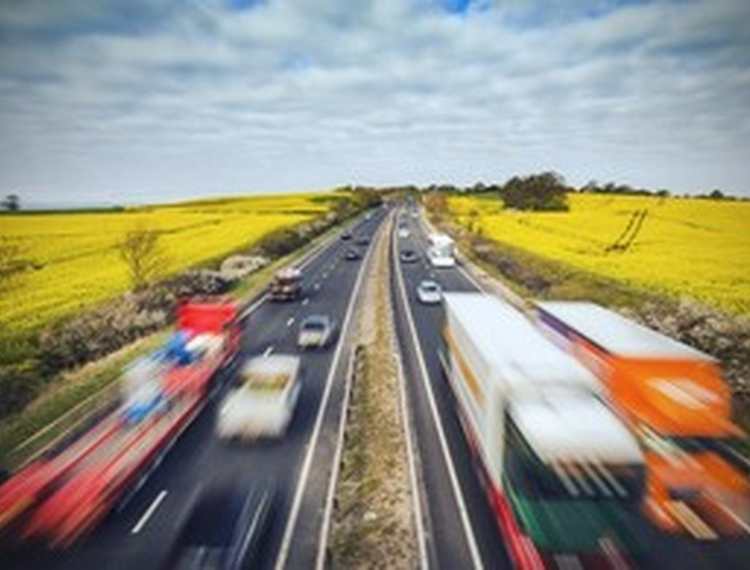Military finish up training to start fuel deliveries as government extends support to industry

UK government announces additional measures to help ensure the stability of the UK supply chain.
Almost 200 Military tanker personnel, 100 of which are drivers, will be deployed from Monday to provide temporary support as part of the government’s wider action to further relieve pressure on petrol stations and address the shortage of HGV drivers.
Demand for fuel has stabilised throughout the week and more fuel is now being delivered than is being sold, however some parts of the country still face challenges.
To help fuel stocks further improve, military personnel are currently undertaking their training at haulier sites across the country and from Monday will be on the road delivering fuel supplies across the country.
This comes alongside a range of measures the Government is taking to ease temporary supply chain pressures in food haulage industries, brought on by the pandemic and the global economy rebounding around the world. In a further step to manage these pressures in the short term, the Government is introducing a bespoke scheme allowing up to 300 fuel tanker drivers to the UK on a temporary basis. In these exceptional circumstances, the Home Office is allowing a number of fuel haulage drivers to work in the UK immediately. Hauliers will find licensed drivers to recruit and will submit applications to the Department for Business, Energy and Industrial Strategy which will endorse applicants with the necessary license and a contract to work as a fuel driver.
This forms part of the temporary immigration arrangements announced last week to help provide short term relief for the food and fuel industries and ensure the stability of the UK supply chain in the run up to Christmas. These time limited measures will facilitate the recruitment of the following cohorts over the coming days and weeks:
- 300 fuel drivers who will be able to arrive immediately (subject to immigration checks, and endorsement from BEIS) and stay to work until the end of March 2022
- 4,700 food haulage drivers who will arrive from late October and leave by 28 February 2022
- 5,500 poultry workers who will arrive from late October and be able stay up to 31 December 2021
The introduction of these temporary, time-limited visa measures, does not detract from our commitment to upskill and increase the wages of our domestic labour, but is in recognition of the extraordinary set of circumstances affecting the stability of the UK supply chain.
Steve Barclay, Chancellor of the Duchy of Lancaster said:
The Government has taken decisive action to tackle the short term disruption to our supply chains, and in particular the flow of fuel to forecourts. We are now seeing the impact of these interventions with more fuel being delivered to forecourts than sold and, if people continue to revert to their normal buying patterns, we will see smaller queues and prevent petrol stations closing.
Defence Secretary Ben Wallace said:
Across the weekend over 200 military personnel will have been mobilised as part of Operation Escalin.
While the situation is stabilising, our Armed Forces are there to fill in any critical vacancies and help keep the country on the move by supporting the industry to deliver fuel to forecourts.
Business Secretary Kwasi Kwarteng said:
Thanks to the immense efforts of industry over the past week, we are seeing continued signs that the situation at the pumps is slowly improving. UK forecourt stock levels are trending up, deliveries of fuel to forecourts are above normal levels, and fuel demand is stabilising.
It’s important to stress there is no national shortage of fuel in the UK, and people should continue to buy fuel as normal. The sooner we return to our normal buying habits, the sooner we can return to normal.
However, we want to see employers make long term investments in the UK domestic workforce instead of relying on overseas labour to build a high-wage, high-skill economy.
Visas will not be the long term solution, and reform within the industry is vital. In addition to short term fixes, the Government is also working with industry to find long term solutions to the shortage of HGV drivers and encourage more people to enter the logistics sector through improved testing and hiring, with better pay, working conditions and diversity.
In line with this approach, the Government and freight associations are now collaborating to drive up the standards of lorry parking facilities – helping to make the HGV industry more attractive for prospective drivers, and supporting the wellbeing of those currently working in the sector.
This ongoing work will build on the 24 interventions we have already made to tackle the shortage of drivers, which includes an immediate increase in HGV testing and new skills bootcamps to train up to 4,000 more people to become HGV drivers.











Responses